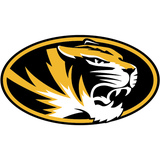
Banned Mizzou booster says he 'had good intentions and no ill intent'

COLUMBIA, Mo. -- A Georgia businessman who gave internships to several Missouri men's basketball players and ran afoul of NCAA rules says he "had good intentions and no ill intent."
Christopher Mark Tuley admitted that he's the employer accused of providing benefits that are not permitted to three players and one recruit in 2013 and 2014, the Columbia Daily Tribune reports. The benefits included compensation for work not done through a summer intern program, along with housing, $520 cash, local transportation, iPads, meals and use of a local gym, according to a 19-month review that Missouri conducted collaboratively with the NCAA. Information the school released last week about the review doesn't name the employer.
Allegations that administrators failed to adequately monitor the internship program were among those that led Missouri to ban itself from the postseason this year and vacate all 23 wins from the 2013-14 season.
Tuley, the founder and president of the Augusta, Georgia, intelligence company T3 Solutions, has been prohibited from receiving tickets, making donations or otherwise representing the university.
In 2013, players Jordan Clarkson and Tony Criswell and team manager Ricky Bolton were employed as interns by T3 Solutions. The following year, player Cam Biedscheid, incoming freshman Jakeenan Gant and student manager Patrick Holman interned there.
Tuley, a former Missouri student, said he was advised before the first year of the program that the players could not receive special privileges.
He said he did not explicitly ask Missouri if giving the players iPads, paying them the money for gas and food or arranging for them to use the gym was permissible under NCAA rules. But an email Tuley sent to a Missouri compliance official shows the university was aware that housing and transportation were provided.
He said the housing, transportation and iPad were provided to all out-of-state interns. Tuley said the cash was provided for gas and food because Clarkson, Criswell and Bolton arrived with no money. He doesn't deny arranging for the use of the gym for players to work out but said he paid nothing for that privilege.
Tuley disputed that the players didn't work. He said that he required all of the players to do two "white papers," which he described as similar to research papers.
Tuley, who also was cited for a minor violation for multiple contacts with a recruit and paying for a meal for a nonscholastic coach, said he wasn't aware of any NCAA problems with the internship program in 2013, so he operated the program the same way in 2014. He said he spoke to NCAA investigators for two hours last spring.
"I think I made it clear that there were things that maybe could have been done differently," Tuley said. "We had good intentions and no ill intent."
Missouri athletic spokesman Ryan Bradley said Missouri couldn't comment on Tuley's statements because the NCAA investigation is ongoing.
